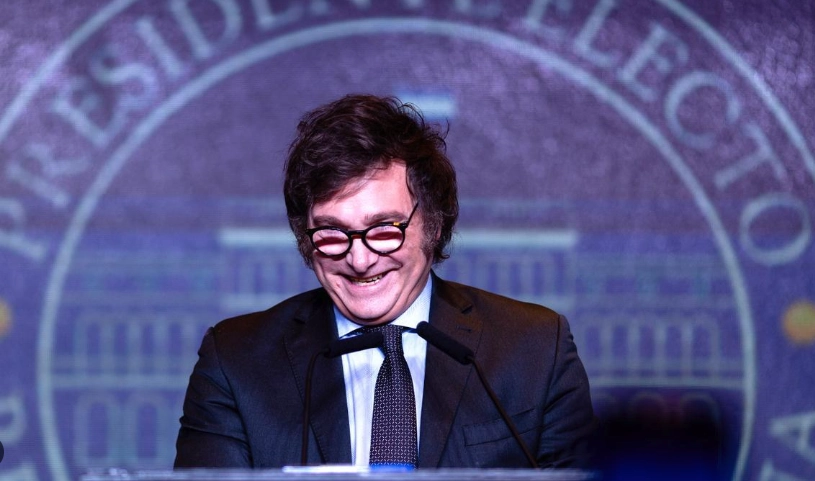A new political cycle will begin in Argentina on December 10. How to understand this true electoral earthquake? Javier Milei’s triumph could be explained by at least five main factors. The first is related to the regional context, the second to the midlife crisis Argentina’s democracy is going through, the third to the often surprising character that has characterized Argentine politics since 1983, the fourth to the proposals presented to society by the winning candidate throughout the electoral campaign and the last to the prevailing climate of change in society.
Regarding the first factor, the region has been a real testing ground for the emergence of radical right-wing leaders with different levels of electoral success, from those who came to power such as Donald Trump in the United States, Jair Bolsonaro in Brazil, Nayib Bukele in El Salvador, to highly competitive candidates defeated in the second round such as Rodolfo Hernández in Colombia or José Antonio Kast in Chile. At the same time, this regional climate coexists with a context of strong electoral punishment to the different officialism in the region in the post-pandemic period, being exceptions to this rule Paraguay (hegemonic party system) and Nicaragua (single party system with a non-democratic regime).
Concerning the second factor, the long cycle of 40 years of democracy confronts us with a very modest balance in terms of satisfaction with social expectations. This has been a process of few achievements and many frustrations to the non-fulfillment of multiple demands. The hopes raised by Raúl Alfonsín’s campaign slogan in 1983, “with democracy we can eat, cure and educate”, have not been fulfilled.
The third factor that explains Milei’s rise is the wide experience the country has in terms of the emergence of political actors, undetected by the radar of traditional politics, who quickly managed to become national political referents. Such have been the cases of Raúl Alfonsín, Carlos Menem, Néstor Kirchner, Mauricio Macri and Alberto Fernández. The exceptions have been Fernando De La Rúa and Cristina Fernández.
Likewise, the pre-candidate Milei has presented to society a set of very controversial proposals. Some of them, such as the sale of organs, are hardly practicable and others are difficult but not impossible in Argentina, such as the closing of the Central Bank or dollarization. All this in a campaign context in which the deterioration of the public debate and the absence of proposals have been its main features.
Finally, the political climate in the country has been marked — and this has become evident during the last stretch of the electoral campaign — by the conflict between two great emotions: on the one hand, the exhaustion from a long political cycle started in 2003 — except for the interregnum of Mauricio Macri between 2015 and 2019 — on the other hand, the fear associated with an uncertain change. Weariness with the known killed fear of the unknown.
Finally, what could happen in the next government of Javier Milei? The risk of the “Peruvianization” of Argentine politics is plausible in the context of a government of the leader of Liberty Advances (LLA) which, even with a resounding victory in the second round, will have fragile parliamentary insertion and no territorial presence since it has neither governors nor mayors in the municipalities of the whole country. However, he will have at his disposal the main resource in the allocation of public resources: the pen orders and disciplines.
What paths could Javier Milei follow? We can think of at least three. The first path would be a successful attempt to close the congress like Alberto Fujimori or a failed one like Pedro Castillo’s. What is the main problem with this alternative? It does not seem that the Armed Forces intend to give any support to decisions of this dimension and gravity, as it happened in the case of Fujimori and did not take place in the case of Castillo.
The second path would be to try a negotiation path with the “political caste”, particularly with that part that could share the reformist impulse of the new administration. What would be the main risk? The loss of Liberty Advances’s ideological purity. The political agreement with the “hard” sector of the PRO during the second ballot would give some indication that the next officialism would go in this direction. This question will be answered after December 10 if the PRO finally grants the necessary, although insufficient, support to guarantee governability.
Finally, a path consisting of a sort of permanent plebiscitary gymnastics and even combined with the previous options. What could be the disadvantage? The wear and tear of the resource and its not-so-enthusiastic adherents. It is a complex scenario, would say a political scientist.
*Translated by Janaína Ruviaro da Silva from the original in Spanish.












